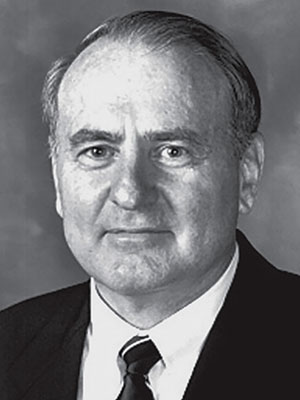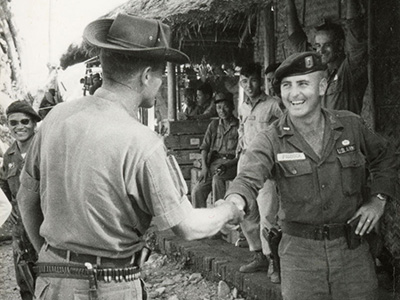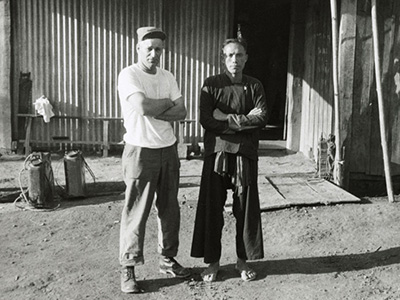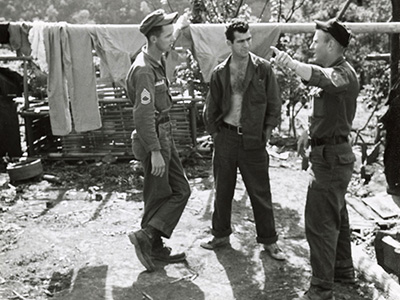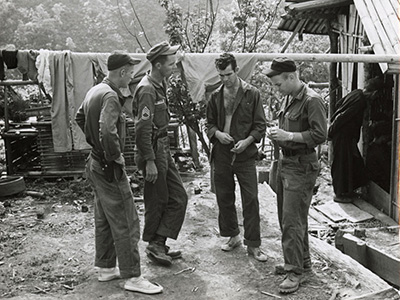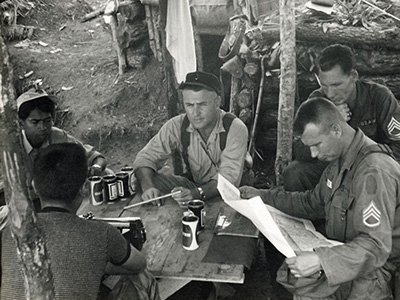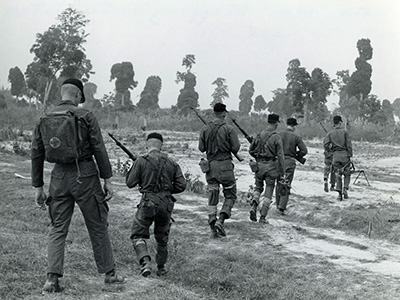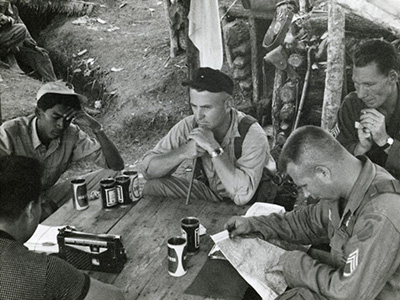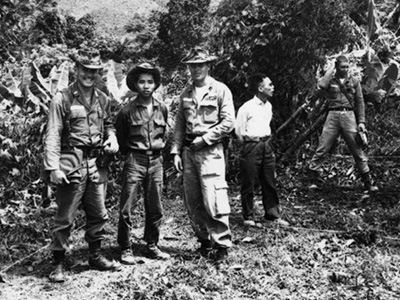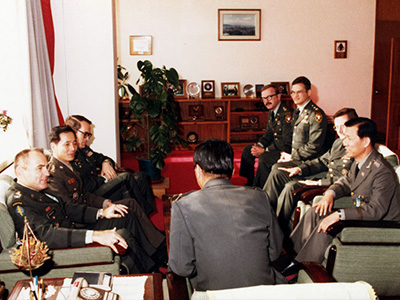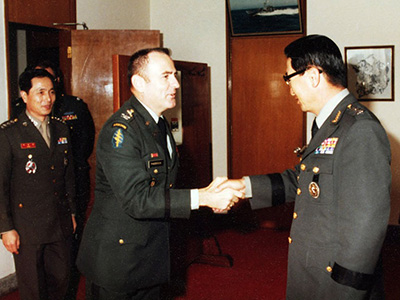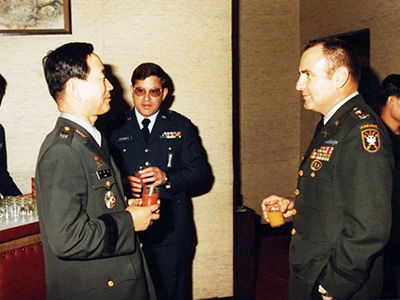Bio
Born 11 February 1937 in Moscow, Idaho, Alfred H. Paddock, Jr., grew up in Bogalusa, Louisiana, before joining the U.S. Army in 1957 and attending Officer Candidate School at Fort Benning, GA. After commissioning as an Infantry Officer in 1958, he was assigned to the 31st Infantry Regiment, Korea.
Paddock began his long association with Army Special Operations Forces (ARSOF) when he reported to the 77th (later 7th) Special Forces Group (Airborne) (SFG) at Fort Bragg, NC, in 1959. He graduated the Special Forces Officer Course in May 1960 and deployed with 7th SFG to Laos in 1961, supporting Operation WHITE STAR. From 1962 to 1963, he commanded a Detachment A-323, Company C, 1st SFG, in the Republic of Vietnam, initiating a Civilian Irregular Defense Group program in the Tra Bong district. Following company command at Fort Knox and additional military schooling, Paddock returned to Vietnam in 1967, serving as the Executive Officer, Detachment B-50, 5th SFG, part of the Military Assistance Command Vietnam Studies and Observations Group.
Paddock’s post-Vietnam assignment as an instructor at the U.S. Army Command and General Staff College at Fort Leavenworth, KS, deepened his interest in strategic studies, which he continued to pursue for the duration of his career. He returned to ARSOF in 1975 to command the 6th Psychological Operations (PSYOP) Battalion and, after graduating from the U.S. Army War College, commanded the 4th PSYOP Group from 1979 to 1982. He then chaired the War College’s Department of National and International Security Studies before concluding his career as the Office of the Secretary of Defense’s Director for Psychological Operations. He was the first to hold that position in more than 30 years.
While on active duty, Paddock earned his Bachelor of Arts degree in political science from Park College and his Master of Arts and Doctor of Philosophy degrees in history from Duke University. In 1982, National Defense University Press published his dissertation, “Psychological and Unconventional Warfare, 1941-1952: Origins of a ‘Special Warfare’ Capability for the U.S. Army,” under the title U.S. Army Special Warfare: Its Origins. Revised in 2002, this book has since become standard reading for those studying early ARSOF history.
Following his retirement as a colonel in 1988, Paddock continued to contribute to ARSOF history as a writer, lecturer, and consultant. Drawing on his extensive historical research, he led the effort to have the U.S. Army Special Operations Command (USASOC) headquarters building dedicated to the Father of U.S. Army Special Warfare, MG (Ret.) Robert A. McClure, in January 2001. He also remained active in the PSYOP and Special Forces veterans’ communities, including a term as president of Special Forces Association Chapter XI in Washington, DC.
In 1998, the newly formed PSYOP Regiment inducted COL (Ret.) Paddock and Command Sergeant Major (Ret.) Rudy Whittaker as its first two Distinguished Members of the Regiment. The Regiment also selected him as its first Honorary Colonel, a position he held until 2002. In 2009, the U.S. Army John F. Kennedy Special Warfare Center and School awarded him the gold-level Major General Robert A. McClure Award for lifetime contributions to the Regiment.
Dr. Alfred E. Paddock, Jr. passed away on 20 March 2025 at the age of 88.
